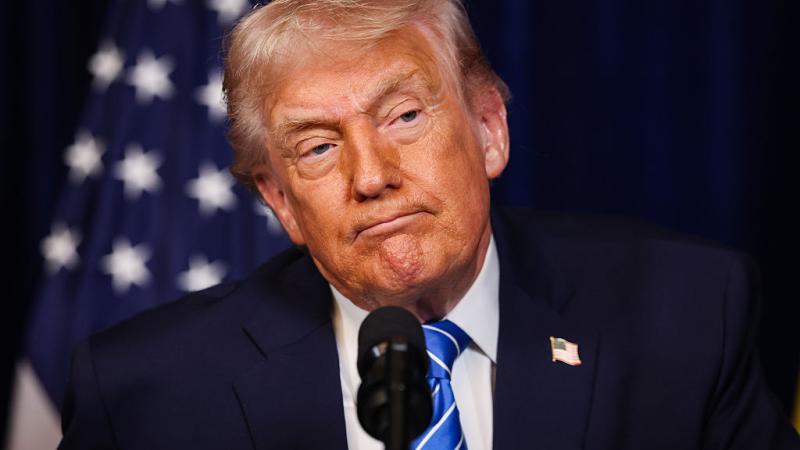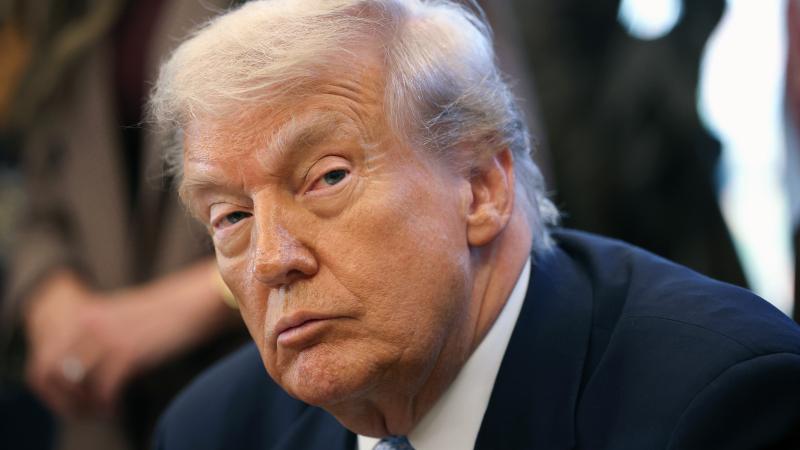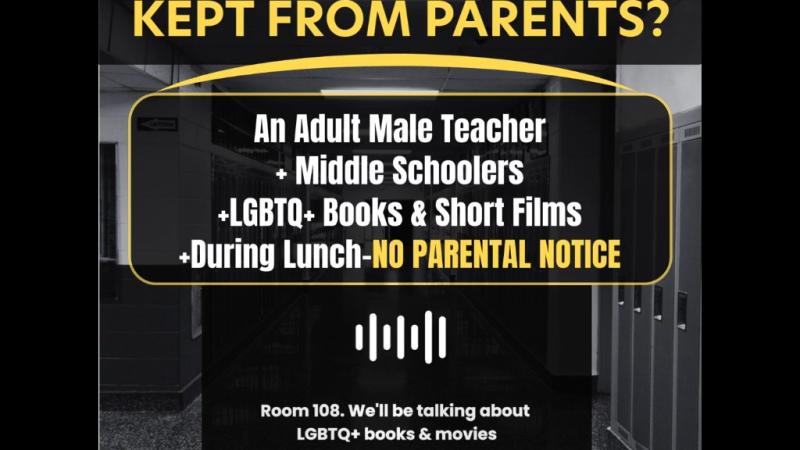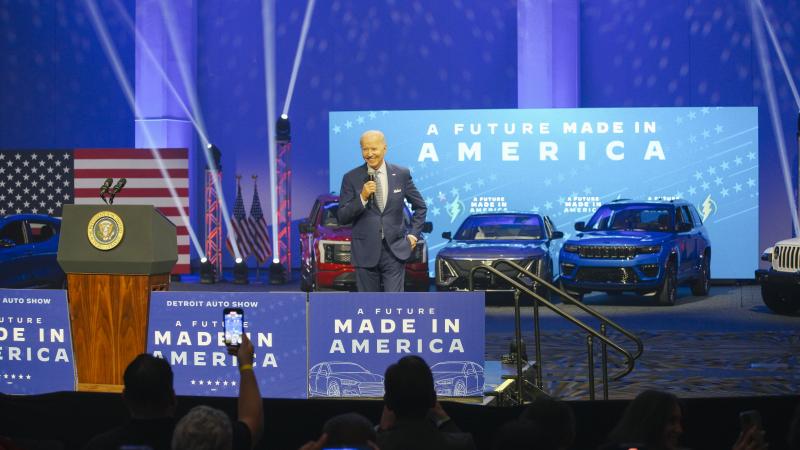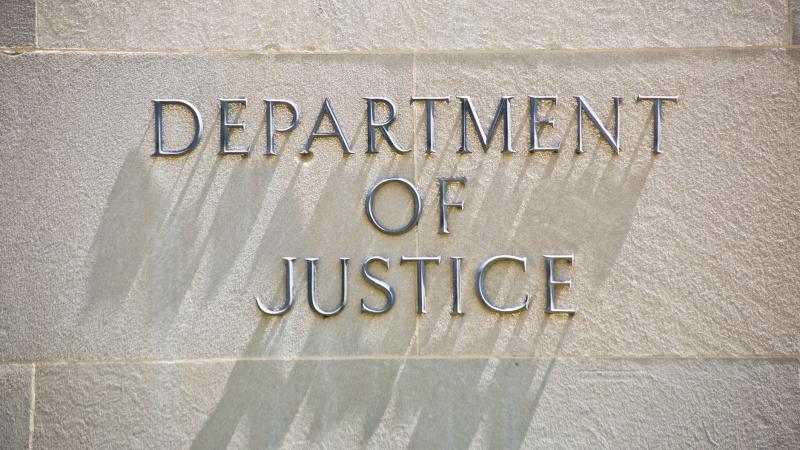'Defining Moment:' How Trump broke down walls to get Ukraine and Russia to a peace framework
For the first time, Kiev and Moscow articulated specific visions this week for a peace deal. And while they remain apart on big issues like land borders and NATO membership, the two sides have a meaningful framework that eluded past negotiations and presidents.
To get to peace, warring countries need to know what the other wants, expects and will resist. For the first 11 years of the Ukraine-Russia conflict and three U.S. presidencies, neither side arrived at such granular detail as they traded barbs, bombs and propaganda.
But that all changed Wednesday after a whirlwind week of shuttle diplomacy by President Donald Trump and his team.
This week for the first time, Kiev and Moscow articulated specific visions for a peace deal. And while they remain apart on big issues like land borders and NATO membership, the two sides have a meaningful framework that eluded past negotiations and presidents.
"I think it's a defining moment, and actually ratchets up the heat on both sides now to come to the table, now that they've basically put their cards on the table," Rep. Andy Biggs, R-Ariz., a co-founder of the War Powers Caucus in Congress, told the Just the the News, No Noise television show Wednesday evening.
He added: "If you've ever negotiated anything, and virtually everybody has, if you don't understand what you want and what the other side wants, you can never get to yes. It's always going to be a no. And so to see that, that now both sides have defined their interests and their goals, it allows President Trump to come in and set additional parameters time wise."
For those who know Trump, the relentless effort to get Ukraine and Russia to brush aside past failures and focus on the details is ripped right from his trademark book "The Art of the Deal."
"After this very strong first ten months in office, he [Trump] is seen as a credible broker by each side. They may not like him, but they respect him, and that's the important thing in this sort of process," former Deputy National Security Adviser Victoria Coates told Just The News on Wednesday.
Even the legacy media -- often the critics of Trump policy -- marveled at the breakthrough.
“The level of optimism projected by both the U.S. and Ukraine is staggering," Axios crowed hours after Ukraine agreed to its version of the framework.
Still, much difficult work remains, and all sides are realistic. But Trump willed the United States to this point by flashing a willingness to consider any idea that would jumpstart fresh talks.
His administration originally crafted a 28-point deal that has since been streamlined to 19 points, designed to bring the nearly four-year Russia-Ukraine war and 11-year conflict to an end. Crafted with contributions from key U.S. negotiators such as Steve Witkoff and Jared Kushner, the framework incorporates both concessions and benefits tailored to the interests of both Ukraine and Russia within the agreement.
The framework establishes reciprocal commitments, including Ukraine’s potential acknowledgment of Russian authority over certain Donbas territories (such as Donetsk), the removal of Western sanctions on Russia, a bilateral U.S.-Russia agreement for joint Arctic resource development, and the reallocation of approximately $100 billion in seized Russian assets to fund Ukraine’s postwar rebuilding.
In exchange, it offers Kyiv robust security assurances—among them U.S. financial backing for defense needs and automatic reimposition of sanctions in the event of future Russian aggression—along with a general amnesty covering actions during the conflict. Separately, European partners have put forward their own additions, such as NATO-like security pledges and the possible deployment of European troops, though these remain outside the main U.S.-drafted plan.
On Tuesday, Ukraine agreed to core terms of the refined 19-point peace framework, according to multiple U.S. officials, Ukraine's National Security Adviser Rustem Umerov, and President Volodymyr Zelenskyy. This follows intensive U.S.-Ukraine talks in Geneva over the weekend, where revisions were made to address Kyiv's concerns, such as stronger security guarantees and fewer restrictions on Ukraine's military. Zelenskyy described the plan as now capturing the "essence" of a viable agreement and expressed readiness to discuss remaining "disputed points" directly with President Trump, potentially during a U.S. visit in the coming days. Umerov highlighted optimism for finalization soon, noting that only "minor details" like enforcement mechanisms and asset reallocations remain outstanding.
Confirming the agreement on social media, Umerov posted on X: "We appreciate the productive and constructive meetings held in Geneva between the Ukrainian and U.S. delegations, as well as President Trump’s steadfast efforts to end the war.
"Our delegations reached a common understanding on the core terms of the agreement discussed in Geneva. We now count on the support of our European partners in our further steps. We look forward to organizing a visit of Ukraine’s President to the U.S. at the earliest suitable date in November to complete final steps and make a deal with President Trump."
Moscow has yet to endorse the updated proposal. In Abu Dhabi, preliminary discussions, overseen by U.S. Army Secretary Dan Driscoll alongside Russian envoys, centered on updating the Kremlin about the modifications endorsed by Kyiv, though officials in the Russian capital have offered no official reply or signs of approval.
Putin has long advocated for the initial 28-point outline, which tilted more toward Moscow's preferences, such as enhanced NATO-style protections for Ukraine. The Kremlin has indicated it will hold off on statements until receiving official documentation from Washington.
Regardless, Trump remains upbeat, sharing on Truth Social that just "a few remaining points of disagreement" linger, while instructing special envoy Steve Witkoff to confer with Putin shortly. However, he made clear he won't convene with Presidents Zelenskyy and Putin until the accord is "FINAL, or in its final stages."
Coates explained that both sides have an interest in the conflict ending soon. For Ukraine, "Zelenskyy has an increasingly intrusive corruption scandal that's reached his office, and there are some who think he may be implicated in it as well.
Coates is referencing a $100 million energy scandal in which anti-corruption investigators are accusing Zelenskyy’s close associates, including ex-business partner Timur Mindich, of skimming 10-15% kickbacks from Energoatom (Ukraine's state energy company) to protect nuclear plants from Russian attacks, sparking resignations and public outrage.
"That's really going to erode his political base in Ukraine, because this goes to supplying electricity to Ukrainians during the winter, and that a lot of people who were working with the electricity companies were skimming, to the tune of hundreds of millions of dollars. And so if you are very cold in your apartment and you're not getting electricity, and you hear that the high ups in the government have basically been collecting a bounty on your unhappiness, that's a problem."
Coates also spoke about the Russian incentive to end the war and said, "Putin, on the other hand, has some economic pressures. They're running out of foreign currency reserves. There are energy shortages. You have Russians waiting in line for gasoline, and they don't like to do that. They're not used to doing that. And we're four years into this war."
